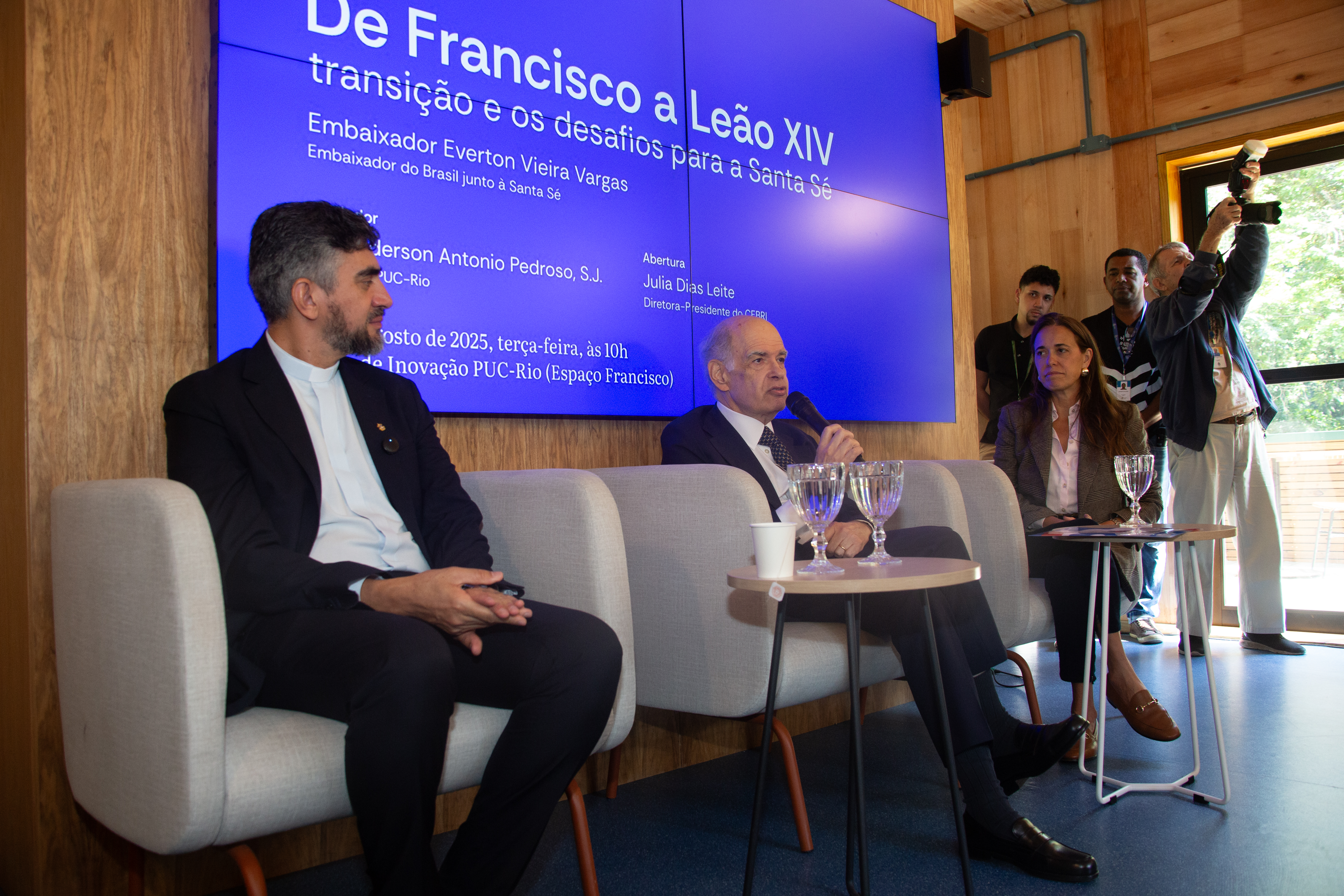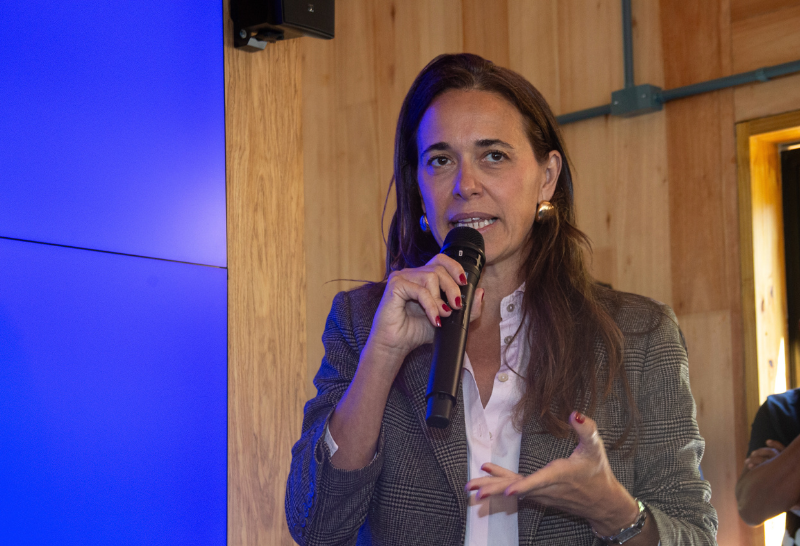PUC-Rio and CEBRI organize roundtable discussion on the transition of the Pontiff and its challenges for the Holy See and the International Order
- Institutional
- 19 august 2025
On August 19th, the Brazilian Center for International Relations (CEBRI), in partnership with PUC-Rio (Pontifical Catholic University of Rio de Janeiro), held the roundtable discussion “From Francis to Leo XIV: Transition and Challenges for the Holy See,” featuring the Ambassador of Brazil to the Holy See, Everton Vieira Vargas. The event took place at the Casa da Inovação (PUC-Rio).
The event commenced with an institutional opening by CEBRI's CEO, Julia Dias Leite, and featured commentary and moderation by Father Anderson Antonio Pedroso, Rector of PUC-Rio.
During the discussion, Ambassador Everton Vieira Vargas underscored the centrality of international cooperation in addressing the climate crisis. He also emphasized that by reaffirming multilateralism as envisioned in the United Nations Charter, the Catholic Church reclaims its universalist vocation, which transcends Rome and Europe, and reinforces its role in interreligious dialogue.
Vargas further drew attention to the ethical and civilizational challenges concerning the regulation and use of Artificial Intelligence, a topic of growing interest in the Vatican. The Ambassador recalled that “peace transcends language, involves the spirit, and is built in the heart.”
In his remarks, he also pointed to the historical significance of the relations between Brazil and the Holy See, which will mark its bicentennial in 2026, noting the influence of the Church's role in Brazil's historical formation.
The Rector of PUC-Rio, Father Anderson Antonio Pedroso, highlighted the distinctive temporality of the Church in contrast to state logic and daily political dynamics, emphasizing that the Vatican projects its actions on horizons of decades and even centuries.
Following the conclusions, CEBRI Senior Fellow Aspásia Camargo offered her contributions, stressing that we are living in a disruptive moment of great transformations, in which spiritual thought must occupy a place of importance in contemporary debates. For her, the concept of aggiornamento (an Italian term for "updating") signifies, within the context of the Holy See, a communion that transforms one's worldview.
In his closing remarks, Vargas emphasized that aggiornamento in the contemporary context should lead the Church to a posture less of a spectator and more of a participant, thus projecting a pontificate of Leo XIV characterized by active engagement on the international agenda.



